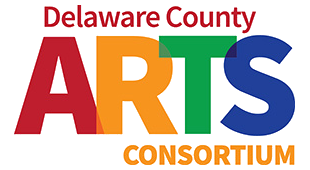The Art of Storytelling
Steps for a successful “ask” for community arts leaders
Too often, we miss an opportunity to educate our local government officials and advocate for the importance of the arts in our community. This could be a result of “cold feet” or a feeling that the official may not care. Please know that THEY DO CARE! The arts is uniquely bipartisan, and a conversation about your organization, and the arts at large, can go a long way.
Here are a few pointers as we begin our discussions on Delco Arts Week.
- Begin the conversation with the end in mind – What is it that you want to convey to your audience? What do you want to make them feel? Go into the conversation having a clear idea of what your “ask” is. For Arts Week, it could be getting the legislator to publically support the week, or attend events.
- Set the Stage – Have a good opening statement prepared when beginning your story. Capture their attention. For Arts Week, something like “My name is X, and I am the director of X, but the reason I am here today is to talk to you about my involvement in a collaborative group of 30+ arts organizations across Delaware County.”
- Paint the Picture – Many legislators may only have time for a 5-10 minute meeting. Develop your story using specific details which are poignant to you end in mind. Make it real and keep it concise. This is a true exercise in quality over quantity.
- If you have time it can be useful to engage them with a question about their personal interest in the arts. It’s a good icebreaker to get them talking about their daughter who takes dance lessons or how they sing in the church choir. It’s unusual for legislators to not have some personal connection to the arts, and getting them to talk about that is a good way to build their empathy for the ask.
- Surprise the audience – You are going into the conversation discussing the arts, so add in facts and figures that show the legislator the commercial and financial success the arts bring to the community. For DAW, you can refer to the financial figures provided by GPCA’s impact study.
- Provide the “ask” – With a clear, honest, practical approach, provide your legislator with the ask you’ve prepared.
- Be patient with their response – Elected officials are very careful with their words. Your audience may not say “yes” right away, and may surprise you by disagreeing with your ask. Listen to them, and if offering a rebuttal, exercise restraint. Not everyone will agree with you.
- Appreciate their time, and offer your assistance – Make sure your audience knows that you appreciate the time spent meeting with you, regardless of their response. Offer your assistance and expertise in any arts matters. Leave behind any literature pertinent to your ask. Follow up with an email or letter thanking them for the meeting. It goes a long way!
One final note – it’s possible that you may end up meeting with a member of staff over the elected official. This can easily be an advantage. The staff member is the eyes and ears of the official, and is their guide in many decisions. Also, they may have more time to discuss your situation. Build a relationship with them and become their arts resource.
– Developed by Eric Carter-Thompson, Executive Director, Darlington Arts Center



